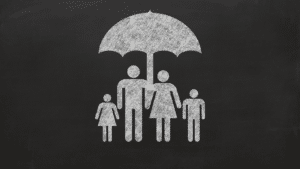
For years, the Financial Industry Regulatory Authority (FINRA) has tracked American personal finance knowledge through a survey about saving habits and basic financial principles. FINRA recently released the results of its 2015 survey, which includes the fact that only 37% of those who took the survey could answer four of the five questions on a basic financial literacy quiz. Four out of five is FINRA’s baseline for high financial literacy. Back in 2009, 42% of the respondents were considered to meet this level of financial literacy. (If you’re curious, you can take the quiz here.)
We’ve previously written about biases in financial habits and the desolate state of personal finance education in high school and college, and this study re-confirms our suspicions. Way less than half of the American population has a sufficient understanding of the basic ideas necessary for successful saving and financial planning! That is nearing crisis levels.
Make no mistake–an ignorance of personal finance, while probably unintentional, has serious consequences. Just over half of respondents said they are worried about running out of money in retirement, only one in five are willing to take risks when investing, and 57% say they set long-term financial goals. But, when taken together with those statistics, the most concerning part is that 76% have a high self-assessment of their financial literacy.
As finance writer Jeff Sommer points out in his recent column, this means that Americans don’t know very much about personal finance and saving, but think they do. The positive self-perception is also the only figure to have significantly increased since 2009.
Improving financial conditions can create a false sense of security for many savers who think their current status makes them recession-proof. This is a huge reason why I decided to start my own firm. I recognized the alarming lack of awareness about saving, spending and the markets, and noted many common bad habits that can lead to trouble in an economic downturn. (For related reading, see: Behavioral Finance: How Bias Can Hurt Investing.)
The lack of education is compounded by the unavailability of many big-name institutions who offer financial advice and wealth management services to many. Traditional wealth management practices often have high account minimums that make their financial advice unreachable for most people. Moreover, even if you can open an account with a wealth manager, they may not be required by law to act in only your best interest, which can lead to inefficient investments for you that pay them commissions.
The reality is that many people are scared by the thought of investing. Since many Americans are mostly in the dark, they may not know where to go or how to start. That’s why it’s important to use online resources and educate yourself on all aspects of personal finance. (For related reading, see: 6 Questions to Ask Your Financial Advisor.)
This article was originally published on Investopedia.com
***



